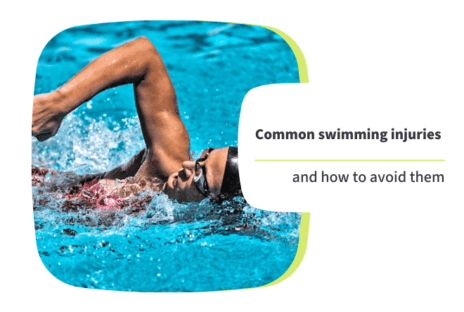7 running safety tips for running safety month

Running is a fantastic way to stay fit, relieve stress, and enjoy the outdoors, but it’s essential to prioritize safety to ensure a positive experience. Whether you’re a seasoned runner or just starting out, following a few key safety tips can help you avoid injuries and enhance your performance. From warming up properly to staying hydrated, the right preparation can make all the difference in your running routine. By incorporating these safety tips into your running practice, you can enjoy your runs while minimizing risks and maximizing benefits.
Avoid injuries while running
If you are in pain from running, it could be a sign of an injury or a chronic condition. Continue reading to help avoid injuries and ensure running safety while running:
- Warm up
- Stay hydrated
- Wear proper shoes
- Use short strides
- Keep your ID and phone on you
- Be aware
- Set a goal
1. Warm up

Before any run, you should warm up your muscles and tendons to reduce the risk of injury. Start with 5–10 minutes of light cardio to loosen up your muscles. You can try walking briskly, jogging slowly, or stretching. Stretches can help raise your body temperature, increase your heart rate, and warm up your muscles and tendons. Some examples include walking lunges, jumping jacks, and toe touches. This also improves the quality of your run.
2. Stay hydrated
Drink extra water on the days you plan to run. Dehydration can lead to muscle cramps, headaches, fatigue, dizziness, increased heart rate or heatstroke. This is especially important in our Florida sun and for performance
3. Proper footwear
You do not need much gear to run, but a good pair of shoes can make a difference in your running experience. Running shoes are designed to protect your feet from impact and provide traction. They can help prevent injuries to your ankles, heels, toes, knees and hips. Shoes can also improve your performance and reduce any discomfort. Visit your local running store for advice on a pair that is right for you.
4. Use short strides
Shorter strides can reduce effort and orthopedic stress. Keep your feet low to the ground and use a relaxed stride within your natural range of motion.
5. Keep your ID and phone on you
For safety reasons, run with a form of ID and your phone on you. Keep any pertinent medical information on you. This can be stored in a cell phone. This allows first responders with vital information. There is various running equipment designed for this purpose.
6. Be aware
Being aware is extremely important for running safety. Keep your eyes and ears open! Some enjoy running to music, but make sure you can still hear cars, bikes, and other potential dangers. Run in well-lit safe areas.
7. Set a goal
Set a distance or time goal to keep you motivated. Goals can also help you stay accountable and reinforce positive habits. Goals can help you deal with mental roadblocks and push you through tough days. It is also an effective way to track and evaluate your progress to see if your goal needs modified.
Get convenient, comprehensive care at Florida Orthopaedic Insitute
Whether you have an injury from running or any other physical activity, we can help. The care team at Florida Orthopaedic Institute includes experts in every aspect of orthopedics. If you’re having discomfort, let us create a customized treatment plan to help you—safely—get back into action and keep active.
Don’t wait to schedule an evaluation with a specialist at one of our many convenient locations in Central Florida. Call us or go online today to book an appointment.
You might also like:
- Dr. Christopher Baker on Fox 13: Preventing Pickleball Injuries
- Trick or treat save your feet: 7 must-know tips for healthy feet and ankles this Halloween
- 6 signs you might have a pickleball knee injury
About Florida Orthopaedic Institute
Founded in 1989, Florida Orthopaedic Institute is Florida’s largest physician-led orthopedic group. It provides expertise and treatment of orthopedic-related injuries and conditions, including adult reconstruction and arthritis, foot and ankle, general orthopedics, hand and wrist, orthopedic trauma, shoulder and elbow, spine, interventional pain management, sports medicine, podiatry, physical medicine and rehabilitation, chiropractic services, and physical and occupational therapy, among others. The organization treats patients throughout its surgery centers in North Tampa, South Tampa, and Citrus Park, at several orthopaedic Urgent Care centers and at office locations in Bloomingdale, Brandon, Citrus Park, Gainesville, Lakeland, Northdale, North Tampa, Ocala, Palm Harbor, Riverview, South Tampa, Sun City Center and Wesley Chapel.
November 14, 2024


